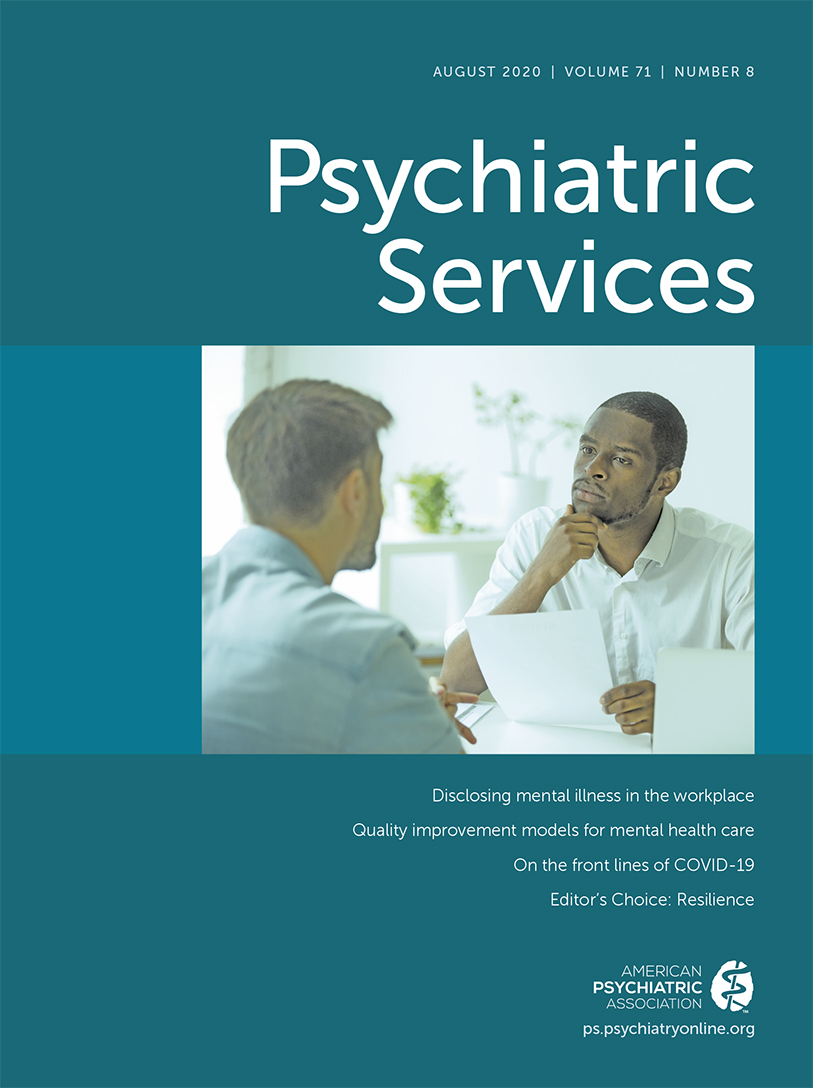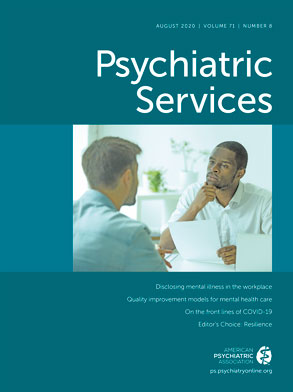Inpatient psychiatric care is particularly challenging during the COVID-19 pandemic because many patients are in congregate settings for meals, group therapy treatment, and social interactions. Infection prevention in inpatient psychiatry can be difficult because patients with acute psychiatric illness may not be able or willing to receive testing or adhere to isolation precautions in the inpatient setting. In addition, high rates of infectious spread and mortality have been described in congregate settings.
In the Yale New Haven Psychiatric Hospital, we encountered an increase in individuals with acute psychiatric needs who were suspected of having and tested positive for COVID-19. In response, a multidisciplinary leadership team developed protocols and created a COVID-specific psychiatric unit, which opened on April 28, 2020. It has admitted 12 individuals, one of whom has had two admissions. Entry points include affiliate and nonaffiliate hospitals in Connecticut, emergency room (preadmission COVID-19 testing used for all patients), and medical units for patients with both psychiatric and general medical need (after the medical needs are stabilized). The average age of patients admitted thus far has been 33.9, 50% were female (one transgender patient), and 25% were African Americans. No acute behavioral codes have been noted, and no medical emergencies have occurred.
Admission criteria are one positive COVID-19 test within the prior 14 days and no significant acute medical symptoms. General exclusionary criteria include pulse oximetry below 93%, respiratory symptoms, and multiple conditions requiring active medical management. After arriving, patients are monitored closely, with vital sign measurements every 4 hours while awake and symptom checks by nursing staff and providers daily. No COVID-specific treatment is administered; the focus is on acute psychiatric need.
On the COVID-19 psychiatry unit, patients are housed in single rooms with shared bathrooms. When not in treatment, patients are encouraged to stay in their rooms and take meals there. However, they are not strictly isolated. Group therapy is conducted in person, with two group sessions in the morning and afternoon, for all ages and diagnoses. Social distancing and mask wearing are encouraged through frequent reminders and COVID-19 educational sessions provided by staff.
All staff working on the COVID-19 psychiatry unit are employees who volunteered to work there. Specialized psychiatric care occurs via telehealth. For routine visits and follow-ups, a treatment team consisting of a psychiatric attending, psychiatric advanced practice registered nurse, and social worker provides care via videoconference to patients on the COVID-19 unit. However, a provider is designated to evaluate patients on the COVID-19 unit in person in cases of medical and behavioral emergency. One main entrance is designated for donning/doffing of full personal protective equipment (PPE), including face shield, N95 mask, hair cover, gown, and gloves. For behavioral codes, an additional entrance is used for quick access with full PPE available and easily accessible.
Our experience with COVID-19 testing is variable. Although patients must have a positive COVID test for admission, many patients continue to remain positive or have testing results that are difficult to interpret. Because many group homes require two negative tests before allowing patients to go to congregate living settings, ongoing positive tests can present a challenge for disposition. Thus, patients who have stabilized psychiatrically may need prolonged hospitalizations due to limited options for disposition. Community settings will need to balance the risk for COVID-19 spread and patient autonomy and patient-centered care.
For example, consider Juan, a (deidentified) 24-year-old male with a history of schizoaffective disorder and cannabis use who presented to the emergency room after a self-harm attempt. At admission, he tested negative for COVID-19. After 2 weeks, he retested positive after developing a cough. The next two COVID-19 tests were also positive, followed by an inconclusive test and then two negative tests prior to discharge to a group home (total length of stay 30 days). He presented to the hospital 2 weeks later for medication nonadherence, substance use, and behavioral dysregulation. He again tested positive and was readmitted to the COVID-19 psychiatry unit.
In summary, a COVID-19 psychiatry unit is both feasible and timely to reduce infectious spread in inpatient psychiatric settings. Future directions will include improving transitions of care for patients who are COVID-19 positive and need community-level care.

